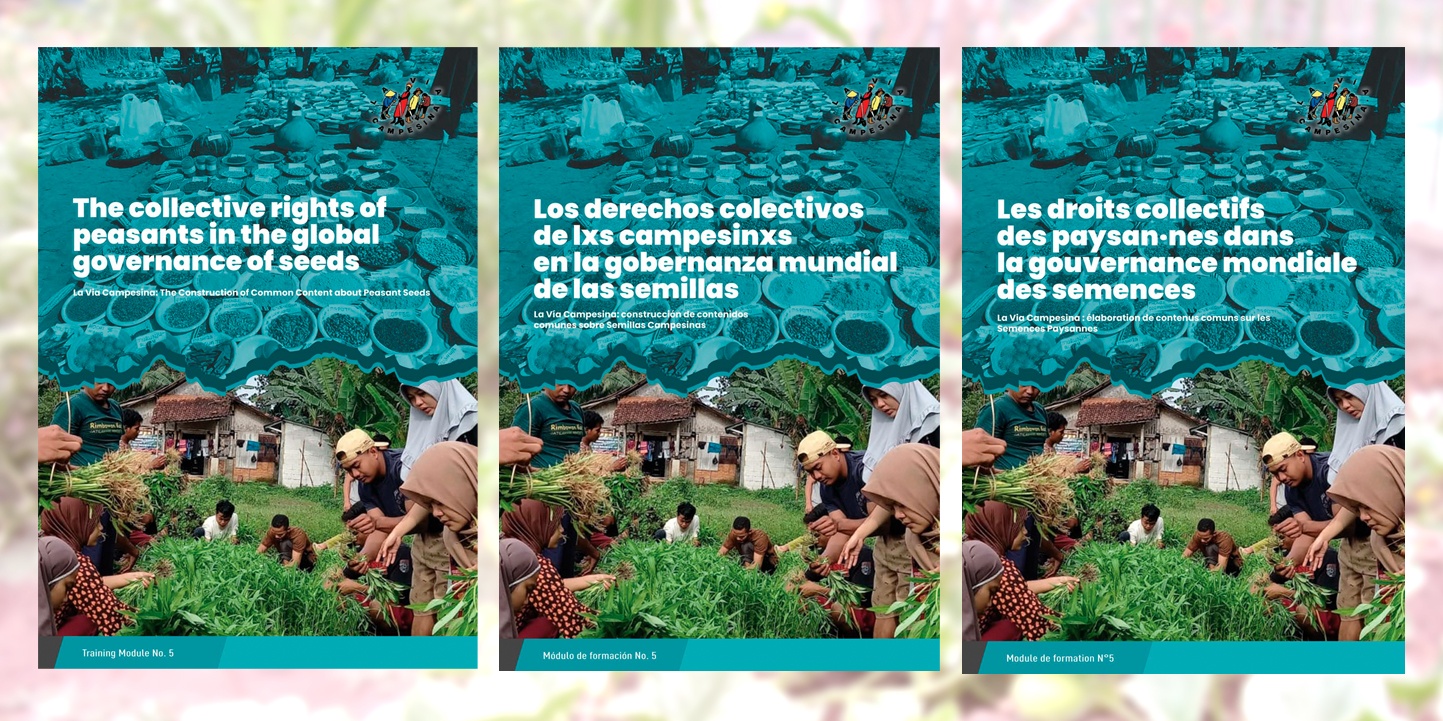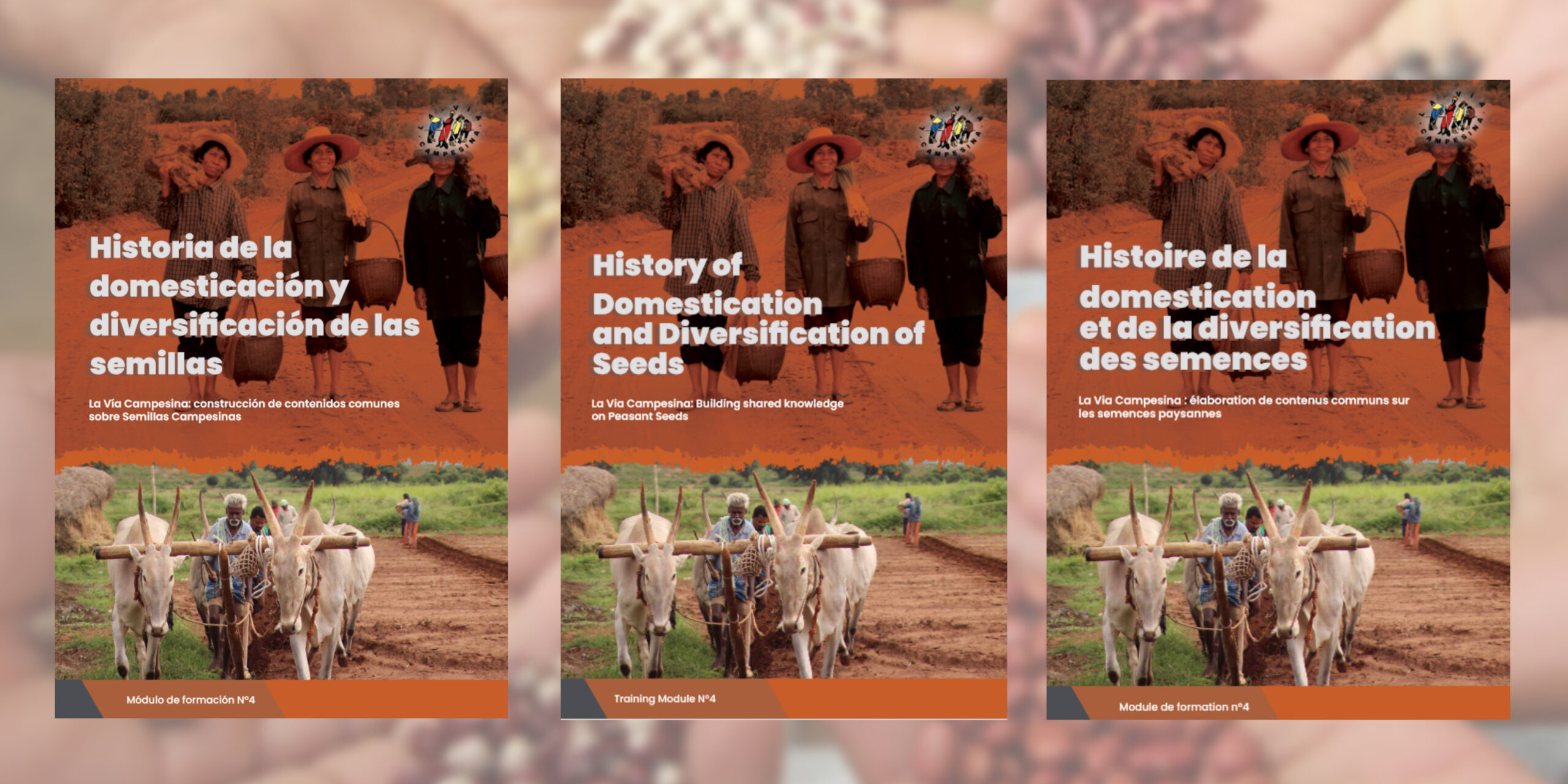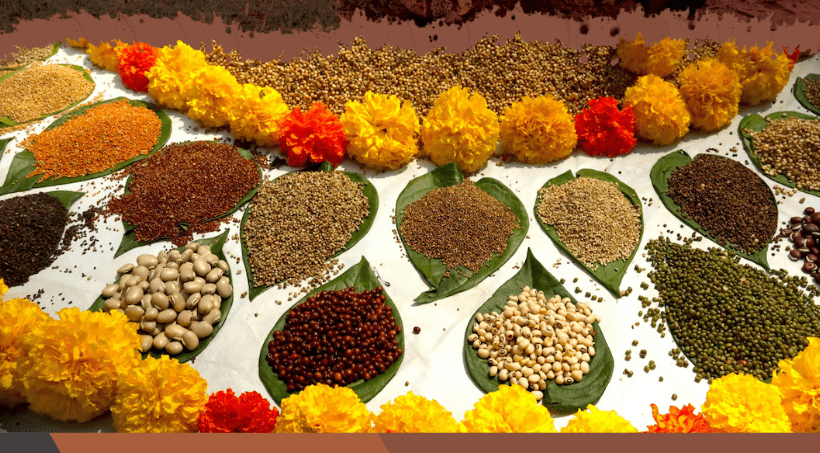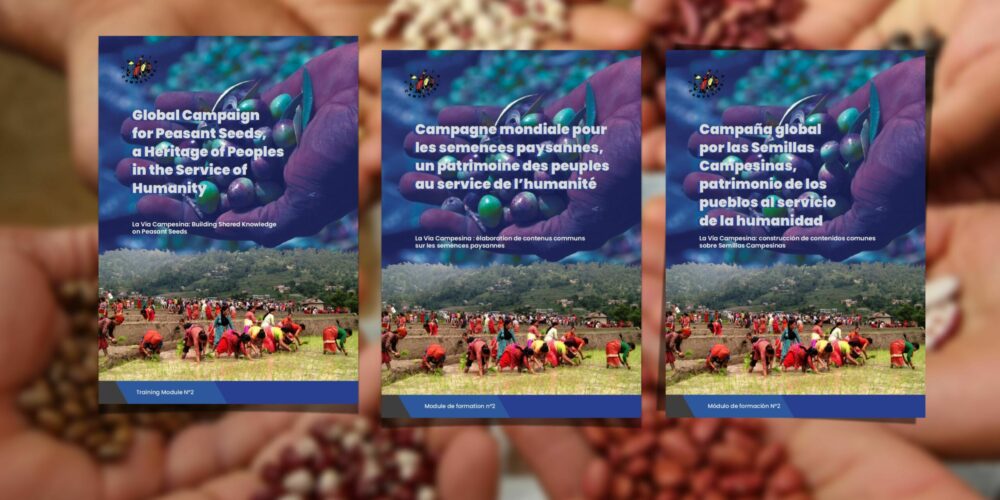For over 30 years, political and technical training has been a strategic priority of La Via Campesina (LVC). We understand that the strength of change lies in the peoples’ level of awareness and degree of organisation.
In this sense, the training processes developed in our movement are closely linked to our political liberation project based on food sovereignty, which is the cornerstone of agroecology. Each institute, school, course and exchange seeks to help form and build a social force and a political force: for us, social force is organised peoples. And political force is peoples that are more and more aware and organised.
La Via Campesina understands that the only way to solve structural problems such as poverty, hunger, exclusion and marginalisation is by empowering the people. And this means developing knowledge and broadening the peoples’ participation in the political, social and cultural life of each of their societies.
Around the world, La Via Campesina has more than 70 schools and training processes based on popular education, which is a method and an approach that puts forward the scaling up of agroecology at the territorial level and the strengthening of peoples’ food sovereignty. All these agroecological training processes are being constructed and organised by member organisations of La Via Campesina.
For La Via Campesina (LVC), agroecology cannot exist without popular education; without the participation of women and young people, because agroecology must permeate the productive chain, as an organisational-political practice that makes solidarity, autonomy, popular agrarian reform, work, income and thus food sovereignty possible.
In this context, political-agroecological training represents for LVC a continuous, broad and systematic process that reflects on practices and integrates socially produced knowledge. A process in which new knowledge based on people’s experience on the ground is created and shared; a process that also acknowledges the multiplicity of knowledge and social and human diversity.
Discussing and implementing political-agroecological training in each movement and organization is important because it makes it possible to understand the historical process, and the progress, limits and challenges of the praxis of struggle. Theoretical characterisation and analysis by social movements are fundamental to prepare and strengthen us before the onslaughts we will face. Without a deep knowledge of reality and theories, it becomes difficult to develop social transformation struggles. In an increasingly complex and difficult global political context, it is essential that the training of activists and political and technical cadres provide them with a capacity to critically interpret reality to transform it.
The agroecological training policy includes a set of pedagogical, organisational and struggle actions, in which different methodologies and contents enrich and expand on the knowledge and consciousness of the base, activists and leaders, to achieve the cultural and political growth of individuals and the organisation as a whole.
Our training processes focus especially on peoples’ sovereignty, food sovereignty, agroecology and territory. Moreover, territory is seen not only as a geographic area, but also as the full defense of human beings and Mother Earth, water, mountains, seeds, air, nature and biodiversity.
MAPPING THE AGROECOLOGY SCHOOLS
The world map below presents some of the most significant training processes in different regions that we have developed and strengthened collectively within La Via Campesina. However, note that this map does not include many other processes developed locally with their own objectives.
TRAINING MODULE ON SEEDS
PEASANT AGROECOLOGY – LATEST NEWS
To mark Pride Month, IFAD’s Farm-Food-Future Podcast team spoke with rural LGBTQ+ small-scale food producers about their experiences in creating inclusive spaces in vegetable farming, beekeeping, and beyond. Alina Luna…
Efforts by the Kenyan Government to have the orders barring the importation, distribution & adoption of Genetically Modified Organisms (GMOs) products in Kenya lifted failed after a Kenyan High Court…
From June 1-2, 2024, the Bamrung Kayotha Agroecology School, run by the peasant union Assembly of the Poor, held a camp for the Kok Edoi autonomous peasant communities in the…
Chengeto Sandra Muzira, a young peasant from the Zimbabwe Smallholder Organic Farmers Forum (ZIMSOFF) and a member of the International Coordination Committee of La Via Campesina, recently spoke on IFAD’s…





